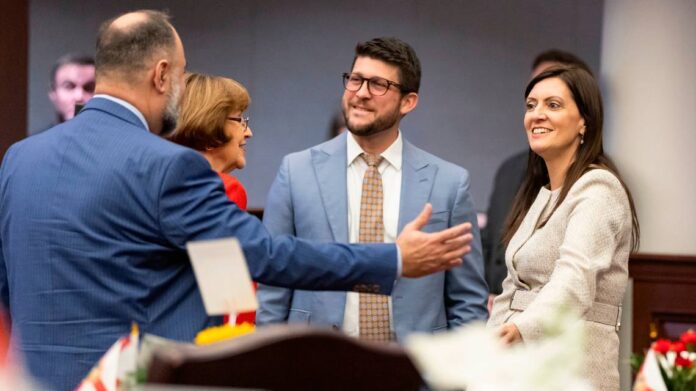Florida Police Ordered to Halt Immigrant Arrests After Citizen Incident
Florida Attorney General James Uthmeier ordered state authorities to halt enforcement of a new state immigration law. This order came shortly after a Miami federal judge stated she was “astonished” that state authorities had continued to make arrests despite her order.
In a hearing Friday in Miami federal court, attorneys suing the state claimed that Florida authorities have made up to 15 arrests in the past two weeks, violating an April 4 order issued by U.S. District Judge Kathleen Williams. One of the people arrested was a U.S. citizen born in Georgia.
Williams stopped short of considering holding state authorities in contempt. Instead, she extended her initial 14-day restraining order for 11 more days. He also made it clear to attorneys in Uthmeier’s office that both state officials and law enforcement were required by his order to suspend arrests under a new state law regarding undocumented immigrants entering Florida.
State law makes it a misdemeanor for undocumented immigrants who entered the United States without inspection to enter Florida.
Following the court hearing, Uthmeier instructed the Florida Department of Law Enforcement, the Florida Highway Patrol (FHP), and Florida police departments and chiefs to “instruct their officers and agents to comply with Judge Williams’ directives.” The arrest of the U.S. citizen was carried out by the FHP.
While urging law enforcement to comply with the court order, Uthmeier also made it clear that he disagreed with the scope of the order.
“I must express my disagreement with this order,” Uthmeier wrote in an email obtained by the Herald. “For reasons my office has argued and which I will explain in more detail in court, this clarification of Judge Williams’s prior order is flawed on the merits and overly broad in scope.”
Uthmeier reaffirmed the arguments her office presented in court on Friday. She stated that she believes the federal judge’s order halting enforcement of a new immigration law should only apply to the state Attorney General’s Office and other executive branch officials, but not to law enforcement officers.
“At most, a district court can order law enforcement to act in concert or participate with the named defendants in enforcing these laws; as my office will soon explain, the current court order exceeds that equitable threshold,” Uthmeier wrote.
She added that her office will continue to present these arguments in court and, if necessary, will take the case to an appeals court.






